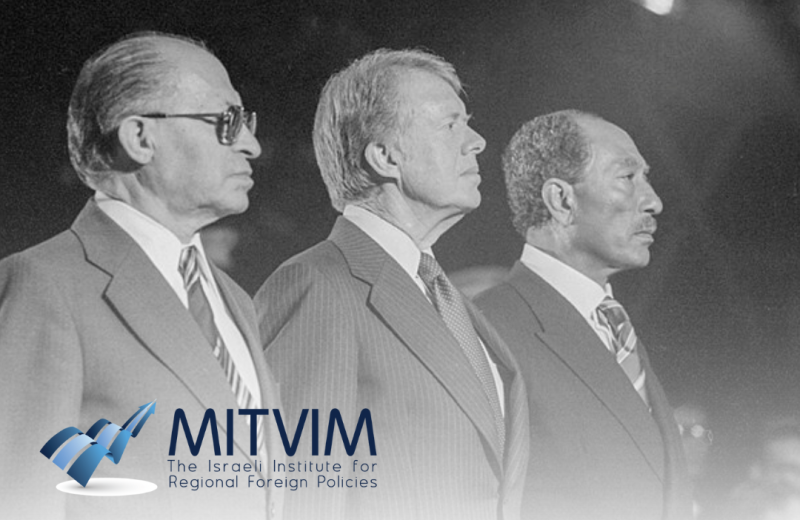 All Publications
/ Israel and USA
All Publications
/ Israel and USA
President Carter, who passed away at the age of 100, was committed to the future of Israel and the region, and to promoting a two-state solution. It is very regrettable that too many people in Israel distort his legacy and blame him for being hostile, even though he understood earlier than others the danger of our descent into a bloody binational reality.
The Camp David Summit, which he initiated, was a personal project of his. Carter acted with persistence and determination, moving between the delegations’ rooms, proposing compromises, and pressing to reach the historic agreement between Israel and Egypt—the country that was then the leader of the Arab world.
Even then, Carter understood that a true solution to the conflict must include the Palestinian issue, and he pushed for Israeli recognition of Palestinian autonomy as part of the agreement, a recognition that ultimately came only with the Oslo Accords 15 years later.
Carter’s commitment to promoting a solution to the Israeli-Palestinian conflict continued to accompany him for decades after he left the White House in 1980. Many in Israel did not welcome his criticism of settlement policies and the preservation of the occupation. He indeed delivered pointed criticism, yet it was rooted in genuine care and a sincere aim to foster peace.
In his book “Palestine: Peace Not Apartheid,” published in 2006, Carter expressed an approach that was not easy to digest but reflected a deep understanding of the reality here. Carter posed an equation that many here have since internalized: without peace, the occupation turns Israel into an apartheid state, where two different legal systems exist for people living in the same territory.
In October 2010, he attended the weekly demonstrations in East Jerusalem’s Sheikh Jarrah against the takeover of homes in the neighborhood by settler organizations. He rightly told the protesters, “I don’t think it can be argued that demolishing homes or confiscating a house where a family has lived for several generations is a just, fair, or peace-loving act.”
Carter was probably the most progressive president the United States has ever known. A worldview that explains his deep commitment to Israel. His commitment drove him to make tremendous efforts to promote peace solutions and prevent Israel from descending into an apartheid reality.
He was an evangelist, however, a very different one from those who have taken over the Republican Party. The Republican evangelists believe that war will bring the second coming, while he believed that peace is the true redemption.
Sometimes he also displayed naivety, leading him to believe that diplomacy alone could change the fundamental perceptions of organizations like Hamas—a premise that proved to be incorrect. He failed to foresee the consequences of the Khomeinist revolution and later to rescue the Americans who were held hostage.
However, Carter’s belief in diplomacy as a tool for resolving conflicts was not misguided. Diplomacy does indeed sometimes require support from military and coercive tools, but in the end, there is no alternative to it.
His greatest achievement—the peace agreement with Egypt—is not only proof of the power of diplomacy but also the greatest gift Carter gave us all: an agreement that opened the door for Israel’s integration into the region and the subsequent agreements that followed.
Our leaders would have done well to listen to his warnings about the implications of the occupation on Israel’s moral and international standing. To accept his advice that the two-state solution is the only way to ensure both the continued existence of Israel as a Jewish and democratic state and the rights of the Palestinians.
Jimmy Carter passed away peacefully nearly 45 years after leaving the White House. But now, the Democratic Party, like many in the United States, who struggled to digest him and his views during his presidency, is embracing his ideological values more than ever, as well as his views on the conflict.
Even after his death, we should wisely listen to Jimmy Carter’s legacy regarding our region. A legacy that, at its core, serves as a reminder that the State of Israel must choose its future—to be an apartheid state or to remain a democracy and the safe, thriving national home of the Jewish people.
The article was published on January 2nd in The Times of Israel.


